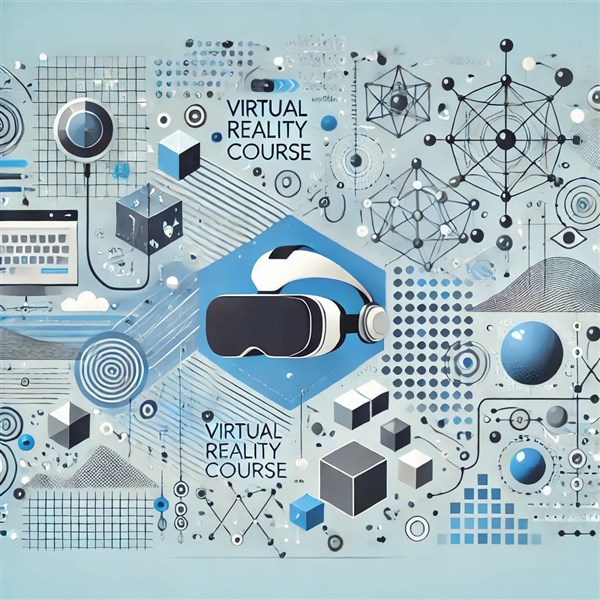
The realm of virtual reality (VR) has expanded significantly in recent years, evolving from a niche interest into a transformative technology influencing various industries. As organizations increasingly adopt VR for training, entertainment, healthcare, and more, the demand for skilled professionals in this field has surged. If you're considering a career in virtual reality, choosing the right course is crucial to your success. This blog aims to guide you through the process of selecting the right virtual reality course tailored to your career goals.
Understanding the Landscape of Virtual Reality
Before diving into the course selection process, it’s essential to understand the different aspects of virtual reality. VR can be broken down into several categories:
- Gaming and Entertainment: Focuses on creating immersive experiences for video games and movies.
- Healthcare: Utilizes VR for training medical professionals and treating patients with conditions like PTSD or phobias.
- Education and Training: Provides immersive learning experiences in various fields, from corporate training to K-12 education.
- Architecture and Design: Uses VR to visualize spaces and designs, allowing for more effective presentations and modifications.
- Engineering and Manufacturing: Helps in prototyping and testing designs before physical production.
Each of these sectors may require different skills and knowledge bases, so identifying your area of interest is a critical first step in choosing the right course.
Assessing Your Career Goals
Before enrolling in a virtual reality course, you need to define your career objectives. Ask yourself the following questions:
- What area of VR interests you the most: Identify whether you're drawn to gaming, healthcare, education, or another field. Your interest will help narrow down the course options.
- What skills do you currently possess: Evaluate your existing skill set. If you have a background in programming, for instance, a course focusing on VR development might be suitable. Conversely, if your background is in graphic design, you may want to explore courses that emphasize 3D modeling and design.
- What roles do you envision for yourself: Think about potential job titles such as VR developer, designer, or project manager. Each role may require different qualifications and skills.
Researching Course Options
Once you have a clear understanding of your goals and interests, it's time to explore available courses. Here are some steps to help you conduct your research effectively:
1. Explore Online Platforms
Numerous online learning platforms offer virtual reality courses. Some of the most popular ones include:
- Coursera: Offers courses from universities and institutions on various topics, including VR development and applications.
- edX: Similar to Coursera, edX partners with universities to provide comprehensive courses on VR and related technologies.
- Udacity: Known for its Nanodegree programs, Udacity offers specialized courses in VR development, including both programming and design aspects.
- LinkedIn Learning: Provides numerous short courses focusing on practical skills in VR software and tools.
2. Check University Programs
Many universities now offer degree programs and certifications in virtual reality, game design, or immersive technologies. Research universities known for their technology and design programs, and consider whether you prefer a more academic or practical approach to learning.
3. Look for Industry-Relevant Courses
Ensure that the course curriculum aligns with industry needs. Look for courses that cover the following topics:
- VR Development Tools: Familiarity with software like Unity or Unreal Engine is crucial for VR developers.
- 3D Modeling and Animation: Courses that teach tools like Blender or Maya are beneficial for those pursuing design roles.
- User Experience (UX) Design: Understanding how users interact with VR environments is vital for creating effective experiences.
- Programming Languages: Courses should cover relevant programming languages such as C# or C++ for development roles.
4. Read Reviews and Testimonials
Researching student reviews and testimonials can provide insight into the course's effectiveness. Look for feedback on:
- Quality of Instruction: Are the instructors knowledgeable and experienced in the field?
- Course Content: Does the curriculum cover all the essential topics you need to learn?
- Hands-On Experience: Does the course offer practical projects or labs that provide real-world experience?
5. Evaluate the Course Format
Consider how you prefer to learn. Virtual reality courses can be offered in various formats, including:
- Online: Flexible and convenient, allowing you to learn at your own pace. However, ensure that the online platform provides ample opportunities for interaction and support.
- In-Person: Offers hands-on experience and networking opportunities, but may require a more significant time commitment.
- Hybrid: Combines online learning with in-person workshops, providing a balance between flexibility and practical experience.
Understanding Certification and Credentials
When selecting a course, it's essential to consider the credentials you will earn upon completion. Certifications can enhance your resume and demonstrate your expertise to potential employers. Look for courses that offer:
- Industry-Recognized Certifications: Certifications from reputable organizations can boost your job prospects significantly.
- Hands-On Projects: Courses that include real-world projects allow you to build a portfolio, showcasing your skills to potential employers.
Networking and Community Engagement
One of the significant advantages of enrolling in a virtual reality course is the opportunity to connect with like-minded individuals and industry professionals. Look for courses that encourage networking, such as:
- Discussion Forums: Active forums where students can ask questions and share ideas.
- Alumni Networks: Programs that provide access to a network of graduates can help you connect with potential employers and mentors.
- Industry Events: Courses that offer access to conferences or workshops can further enhance your learning experience and networking opportunities.
Conclusion
Choosing the right virtual reality course is a pivotal step in shaping your career in this exciting and rapidly evolving field. By assessing your career goals, researching available options, and understanding the essential skills needed for your desired role, you can make an informed decision. Remember that the right course will not only provide you with the necessary knowledge and skills but will also connect you with a community of professionals who share your passion for virtual reality. With dedication and the right education, you can carve out a successful career in this transformative industry.
The virtual reality certification you gain at the end of your course can significantly impact your career. It validates your skills and knowledge, making you more marketable to potential employers. Therefore, ensure that the certification is recognized in the industry.
In conclusion, choosing the right VR training program is crucial in achieving your career goals. Koenig Solutions offers comprehensive VR training courses that equip you with the necessary skills and knowledge to excel in the VR industry.







COMMENT